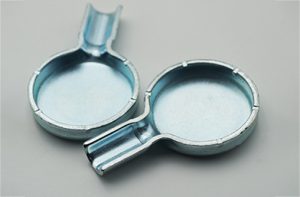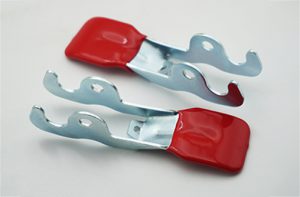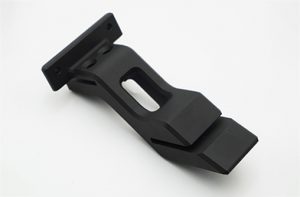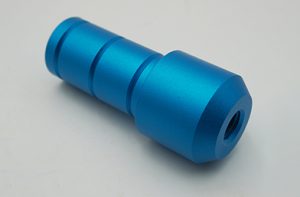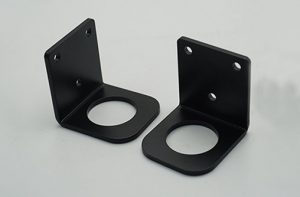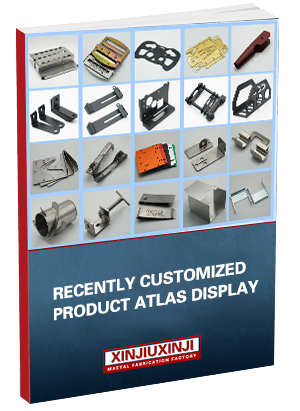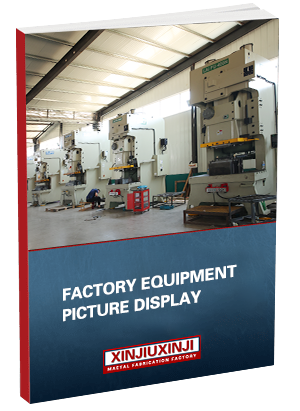Medical/Healthcare
In the Medical/Healthcare sector, the requirements for metal components are particularly stringent due to the critical nature of healthcare applications. These components must be biocompatible, corrosion-resistant, and capable of enduring rigorous sterilization processes. Additionally, precision and reliability are essential, as any failure could jeopardize patient safety or treatment efficacy.

At Xinjiuxinji, we specialize in custom metal part fabrication for the medical field, ensuring that our products meet the highest standards of quality and performance. Our manufacturing processes are aligned with industry regulations, utilizing materials like stainless steel and titanium known for their strength and biocompatibility. Each component is produced with meticulous attention to detail, ensuring reliability in demanding medical environments. Our commitment to quality and customer satisfaction allows us to deliver tailored solutions that meet the specific needs of healthcare professionals, enhancing the overall performance and safety of medical devices.
Metal components play a crucial role in the Medical sector, where precision, durability, and biocompatibility are essential for devices and equipment used in patient care. These components must meet stringent regulatory standards to ensure safety and effectiveness.
Metal-Stamped Components
Surgical Instruments
Surgical instruments, such as scalpels and forceps, require high precision and sharpness. The metal stamping process ensures consistent quality and performance, while corrosion resistance is vital for sterilization and safety.
Implants
Metal implants, like hip or knee replacements, must exhibit excellent biocompatibility and mechanical strength. Stamped metal parts need to withstand stress and be designed for long-term stability within the human body.
Medical Carts
Medical carts often use stamped metal parts for structure and support. These components must be durable and resistant to cleaning agents used in healthcare settings, ensuring longevity and hygiene.
Diagnostic Equipment
Components for diagnostic equipment, including frames and supports, need precision for accurate measurements. Stamped parts must also be corrosion-resistant to maintain functionality in various environments.
Needles and Syringes
Needles and syringes require precision manufacturing for safety and reliability. Stamped metal components must ensure smooth operation and integrity to prevent leaks and ensure accurate dosing.
Connectors
Connectors used in medical devices must have reliable electrical and fluid connections. Stamped components need to be designed for ease of assembly while maintaining durability and resistance to corrosion.
Protective Covers
Metal protective covers for devices must provide adequate shielding while being lightweight. Stamping allows for consistent thickness and strength, ensuring that the covers are effective and easy to handle.
Instrument Trays
Instrument trays often use stamped metal for their structural components. These parts need to withstand repeated sterilization processes without warping or degrading in performance.
Healthcare Furniture
Stamped metal components in healthcare furniture, such as examination tables and chairs, must offer strength and stability. They should also be resistant to cleaning agents and meet design specifications for patient comfort.
These stamped metal parts are essential for ensuring the functionality and safety of medical devices, contributing significantly to the quality of care provided in the healthcare industry.
Different metal materials are essential in the Medical field for their specific properties and performance characteristics. These materials are selected based on the requirements of durability, biocompatibility, and corrosion resistance.
Common Metals Used In Medical/Healthcare
Stainless Steel
Stainless steel is widely used due to its excellent corrosion resistance and strength. Its ability to withstand sterilization processes makes it ideal for surgical instruments and implants. The durability of stainless steel ensures long-lasting performance in demanding medical environments.
Titanium
Titanium is highly valued for its biocompatibility and low density. It is often used in implants, as it integrates well with bone and resists corrosion in bodily fluids. This metal’s strength-to-weight ratio makes it an excellent choice for load-bearing applications in the medical field.
Cobalt-Chromium Alloys
These alloys offer high strength and wear resistance, making them suitable for dental and orthopedic implants. Their resistance to corrosion and fatigue ensures longevity, which is critical for devices exposed to harsh environments in the human body.
Aluminum
Aluminum is lightweight and has good corrosion resistance, making it useful for various medical equipment and furniture. Its malleability allows for easy shaping into intricate designs, while its strength supports structural applications.
Nickel-Titanium Alloys
Known as Nitinol, these alloys exhibit unique superelastic and shape memory properties. They are commonly used in medical devices like stents and guidewires, where flexibility and adaptability to dynamic conditions are essential.
Copper
Copper is recognized for its antimicrobial properties, making it useful in applications where infection control is critical. It is often utilized in touch surfaces and medical devices, enhancing hygiene and reducing the risk of contamination.
Zinc
Zinc is sometimes used in coatings for metal components to provide additional corrosion resistance. In medical applications, it helps protect devices that may come into contact with moisture or bodily fluids, ensuring their longevity and effectiveness.
Magnesium Alloys
Magnesium alloys are lightweight and biodegradable, making them an exciting option for temporary implants. Their biocompatibility and ability to naturally dissolve in the body offer innovative solutions for medical applications that require reduced long-term foreign material presence.
These metal materials play a vital role in ensuring the functionality, safety, and effectiveness of medical devices, ultimately contributing to improved patient care and outcomes.

Your Trusted Partner in Metal Custom: The Xinjiuxinji Advantage
Xinjiuxinji is proud to hold the ISO 9001:2015 certification, demonstrating our commitment to quality management systems. We have extensive experience in manufacturing metal components for the medical/healthcare field, where precision and reliability are crucial. Our stringent quality controls ensure that we meet the highest standards, consistently delivering products that satisfy our clients’ specifications.
We understand the unique challenges faced by our customers in the medical sector, and we are equipped to optimize and customize solutions for their specific projects. Our skilled team collaborates closely with clients to enhance design efficiency and product performance, ensuring the final output aligns with their expectations. At Xinjiuxinji, we strive to be a trusted partner in advancing healthcare technologies through our quality metal components.






 +86 18892239158
+86 18892239158

